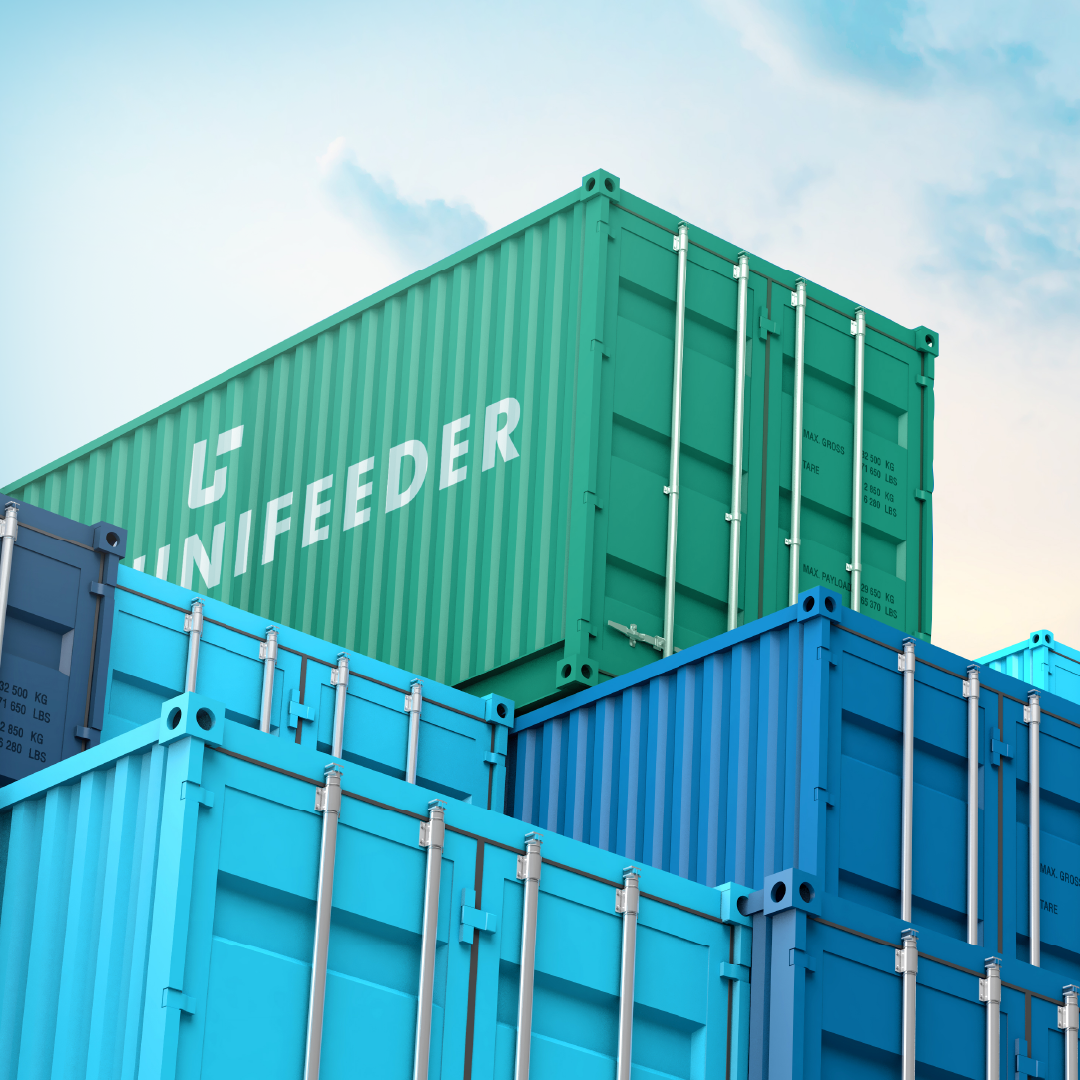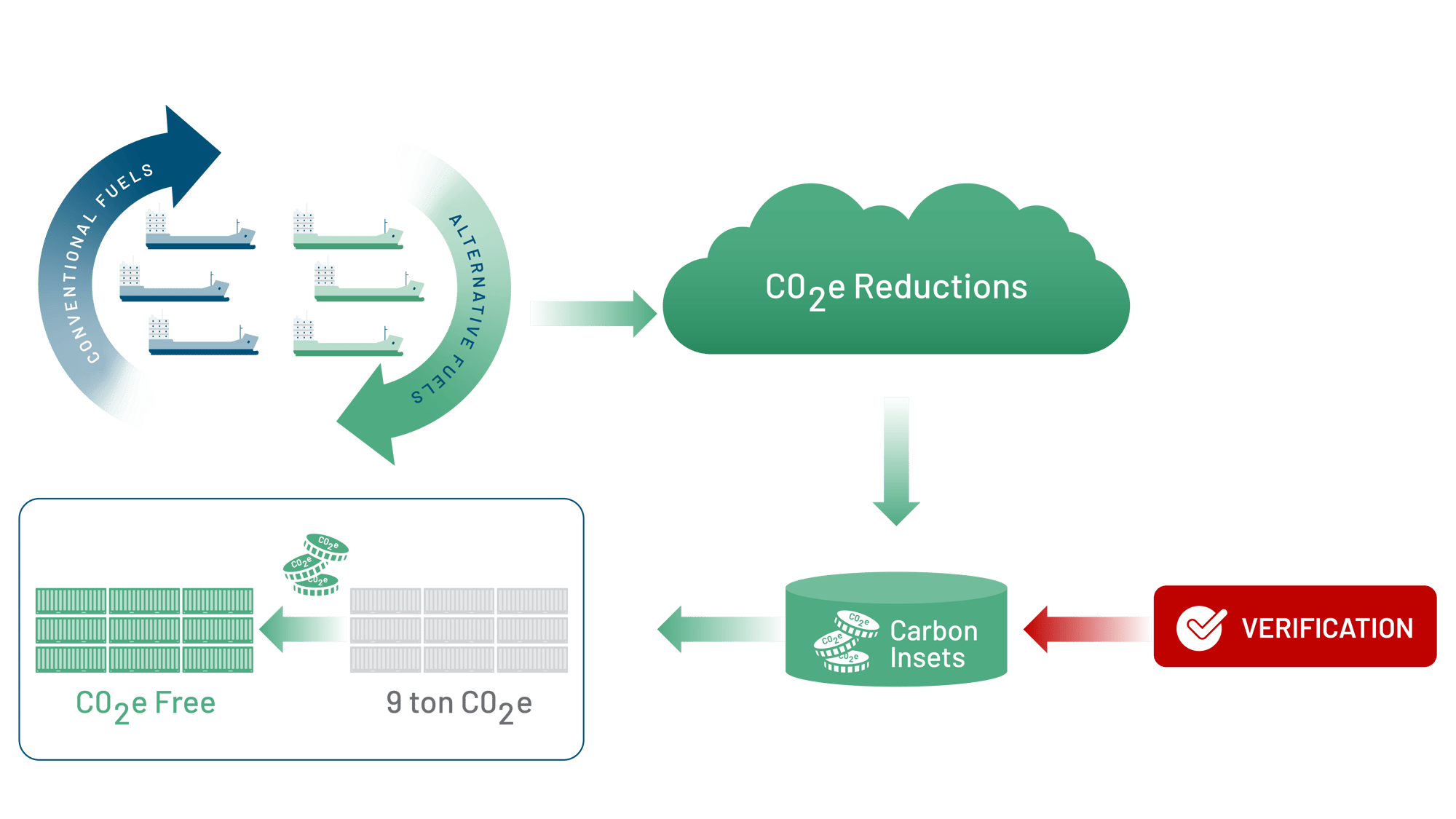“CARBON INSETTING”
A TURNING POINT FOR CLIMATE PROTECTION

Linking the decarbonization of the fleet of vessels with the demand for low carbon transportation
We have started to use alternative fuels on our vessels, in the form of carbon reduced biofuels. With the takeover of our methanol-powered container ships in 2026 and the availability of green methanol, this will be the next big step towards decarbonizing our fleet.
Cargo owners have recognized that they, as transport consumers, must also make their contribution to decarbonization. This sense of responsibility has led to an increasing demand for climate-neutral transport solutions. And this demand is needed for the decarbonization process to take off.
But how can a climate-conscious cargo owner decarbonize its container transport and actively contribute to the decarbonization of maritime shipping? To achieve this, the cargo owners' demand for climate-neutral transport must be reconciled with the decarbonization of our vessels.
And this is where a customized "Book & Claim" application that uses the principle of carbon insetting helps us.
Insetting versus Offsetting?
Carbon insetting is a method that promotes and enables the active implementation of measures to reduce one's own carbon emissions as part of the transport services offered. The actual carbon reductions achieved through the use of alternative fuels can be used as carbon insets to decarbonize transport needs.
This approach differs from traditional offsetting, in which carbon credits are acquired from external projects, but the CO2 emissions caused by the company itself are not reduced.

What is the challenge?
As alternative fuels are not yet widely available and cannot be used on all our vessels, it is only possible to decarbonize part of the network of vessels.
This means that willing cargo owners would theoretically not be able to book climate-neutral transport for their container for all services. Other cargo owners, on the other hand, who have no demand for climate-neutral shipments, will not contribute to the fact that their container was transported on a vessel that used alternative fuels.
The solution is to offer the decarbonization of container transport to those cargo owners who demand it, regardless of whether an alternative fuel was used for the container transport in question – but still assuring that the decarbonization has been accomplished in the network of the vessel operator.
Mass-balance-principle
This challenge is comparable to the desired use of green electricity by private households. There is a demand for renewable electricity and a willingness to pay a higher price for it. But the renewable electricity from wind or sun is fed directly into the general electricity grid and not directly into households that are prepared to pay more.
The guaranteed use of green electricity is therefore not possible. However, by applying the mass-balance-principle, climate-conscious consumers can buy green electricity and thus promote the production of renewable electricity and do something good for the climate.
How does Book & Claim work?
“By acquiring carbon insets, the cargo owner accelerates the use of further alternative fuels.”
The Book and claim approach within our industry works similar to the renewable electricity market.
The ship operator generates carbon reductions on several vessels in its fleet by using alternative fuels. These carbon reductions will be bundled, converted into tradable carbon insets and externally verified. These verified carbon insets can be used by cargo owners to neutralize their carbon impact.
Safe and Secure
This Book & Claim process is a chain-of-custody model that decouples carbon reductions from vessels where they have been generated. The entire Book & Claim process, the tokenization of carbon reductions into carbon insets and the verification process are certified and audited by external authorities. Double counting or multiple utilization of carbon reductions or insets is therefore ruled out.
Book & Claim supports the decarbonization cycle
Thanks to a book and claim system, cargo owners can manage the demand for climate-neutral container transport. By using carbon insets, the cargo owner accelerates the use of alternative fuels and thus significantly supports the decarbonization of the shipping industry.
Unifeeder recognizes the benefits and great potential of using a verified book and claim solution for the maritime industry.
GET MORE INFORMATION ON OUR GREENBOX SOLUTION
GreenBox - Want to decarbonize your supply chain?